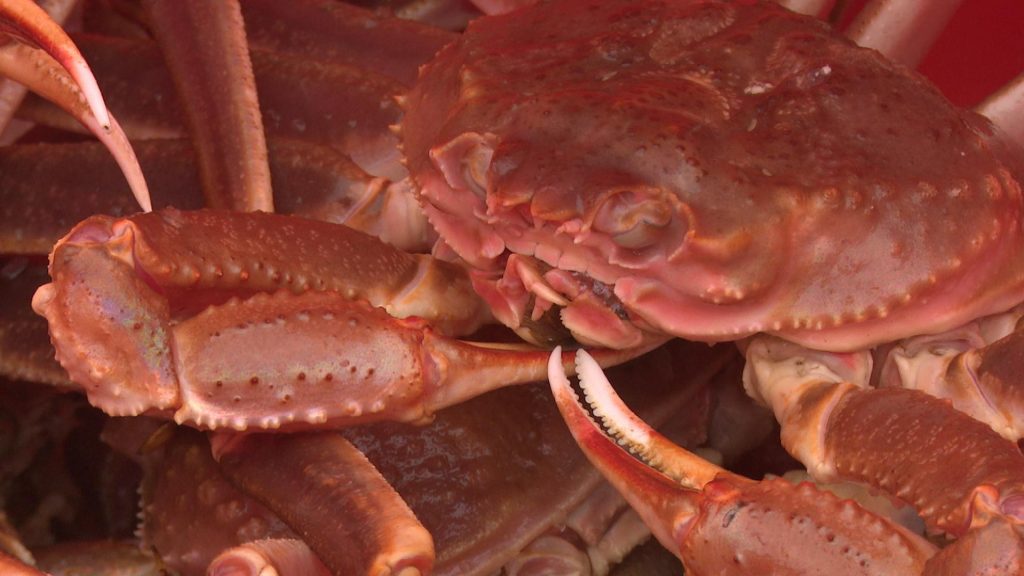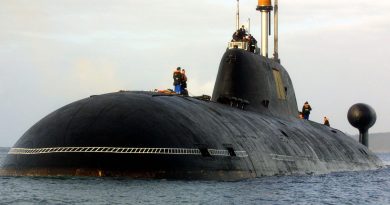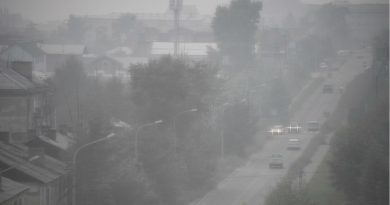Snow crabs invading Russia’s Arctic nuclear waste dump

Researchers find a huge influx of snow crabs in areas with dumped radioactive waste in the Kara Sea, in Arctic Russia.
The Soviet Union during the 1960s and 70s dumped several hundred containers with solid radioactive waste in the Blagopoluchie Bay in Novaya Zemlya. Back then, these waters were covered with ice overwhelming parts of the year.
Today, that is quickly changing. The bay located in the northern part of the Russian Arctic archipelago is now ice-free increasing parts of the year. With the retreating ice follow new species.
Researchers from the Russian Shirshov Institute of Oceanology have comprehensively studied the ecosystem of the bay for several years. Among their key findings is a quickly growing number of snow crabs. In this year’s research expedition to the remote waters, the researchers were overwhelmed by the numbers. According to the institute, the crab invasion can be described “as an avalanche”.
The number of crabs in the area is now estimated at almost 14,000 per hectare, the institute informs (in Russian). With the help of underwater photo and video footage, the researchers have studied how the crab expansion is leading to a reduction in other marine life on the sea bottom.
Towards commercial fishing

The deep Blagopoluchie Bay in the Kara Sea is likely to be the bridgehead for the spread of crabs in the area, the researchers say. A further spread in the other parts of the Kara Sea is imminent, and the Russian Fisheries Agency (Rosrybolovstvo) believe that the Kara Sea will ultimately become an area with commercial crab fishing.
“We expect an increase in the numbers, like we have seen in the Barents Sea,” representative of Rosrybolovstvo, Sergey Golovanov told Interfax (in Russian).
He adds that the Kara Sea does not border on other countries and that Russia consequently can alone and independently manage marine resources in the area.
In the Barents Sea, the snow crab has quickly expanded and is now found over major parts of the area. In summer 2018, the Norwegian Institute of Marine Research conducted its first expedition exclusively devoted to the crab. Data collected confirmed the quick and major expansion of the animal, the researchers say (in Norwegian).
Radioactive waste dump
The expedition by the Shirshov Institute of Oceanology was made with research vessel Akademik Mstislav Keldysh and included tests of the sea bottom in the area. No major leakage from the radioactive materials have so far been registered.
Soviet authorities are believed to have dumped about 17,000 containers with solid radioactive wastes in Arctic waters and primarily in the Kara Sea. More than 900 containers are located on the bottom of the Blagopoluchie Bay. Also a number of reactor compartments were dumped, as well as three nuclear subs and other nuclear materials.
Related stories from around the North:
Canada: Canada announces investments to tackle illegal fishing and discarded fishing gear, Radio Canada International
Finland: Can a high-pitched noise scare seals away from Baltic fisheries?, Yle News
Greenland: Binding agreement on Arctic fisheries moratorium officially signed by EU and nine countries, Radio Canada International
Norway: Will Russia ask Norway to cut crab fishing in Arctic fjord?, The Independent Barents Observer
Russia: Russia’s Arctic nuclear dump could become promising fishing area, The Independent Barents Observer
Sweden: Swedish drones to combat illegal eel fishing, Radio Sweden
United States: Alaskan Indigenous community group pushes for better fishing quotas, Alaska Public Media



